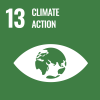Ma’rib, Yemen – It was a typical summer day when Abdullah set out on his motorbike, scouring the city of Ma’rib for customers needing a ride. This was his livelihood, supporting his wife and one-year-old daughter who patiently awaited his return to their shelter at the Jaw Al Naseem site in Ma’rib.
The morning sky was clear, but soon dark clouds rolled in and a sharp wind began to cut through the air, filling Abdullah with a deep sense of dread as the storm neared.
“I immediately went home to check on my family and help, but the wind only grew stronger,” recalls Abdullah. “I urged my wife to take our daughter to a smaller shelter, hoping we would be better protected.”
To their dismay, the wind was so powerful that it ripped their shelter from its foundation, and they found themselves thrown to the ground amidst flying debris. Tragically, Abdullah’s daughter sustained a fatal head injury. In just under 20 minutes, life changed irrevocably for Abdullah and thousands of families like his.

In the aftermath of devastation, IOM teams are working relentlessly to provide relief and help communities rebuild their lives. Photo: IOM/Haithm Abdulbaqi
Yemen ranks among the world’s most vulnerable countries to climate change, yet it remains ill-prepared to mitigate or adapt to its impacts. In early August, violent rainstorms and powerful winds devastated several governorates and had a far-reaching impact on over half a million people across Yemen.
In this challenging context, Ma’rib has emerged as a hub for displacement, witnessing a significant influx of families in recent years. Thousands of these families now reside in displacement sites, facing ongoing challenges. In Ma’rib alone, recent windstorms have impacted nearly 150,000 residents and internally displaced persons. The storms demolished walls, tore shelters apart, and led to extensive losses of livestock and property.




IOM team members navigate through debris to reach community members, understand the extent of the devastation, and assess their needs. Photo: IOM/Haithm Abdulbaqi
“In the blink of an eye, everything was destroyed, and everything we had worked for was taken away,” explains Ali, Abdullah’s father. “I lost my granddaughter, my money, my clothes, and all my belongings in this windstorm.”
Following that storm, weeks of torrential rains and floods inflicted further damage. Thousands of families saw their homes and shelters ruined. Public infrastructure, including schools, roads, electricity, and health facilities, were devastated by the relentless rains. Dozens tragically perished, while many others suffered severe injuries across the region.

As the debris is cleared, the emotional toll of those who lost family and friends becomes palpably clear. Photo: IOM/Haithm Abdulbaqi
Ahmed Al Zabidi, a Senior Protection Programme Assistant with the International Organization for Migration (IOM) in Ma’rib, experienced a deeply moving visit at the Alsit site during a protection assessment. There, he met a pregnant woman whose life had been drastically affected by the recent windstorm, heavy rains, and flooding.
“While assessing the situation, the woman suddenly started to quietly weep,” Ahmed shared. “Through her tears, she mourned, ‘Oh, my baby, I’m so sorry. You died before seeing this world. I didn’t mean to lose you. You were my first baby; your father and I had prepared everything for you, but sadly, you are gone before we even had the chance to meet you.’”
Ahmed waited patiently for her to compose herself before she continued her story. Six months pregnant, she had been resting in her tent during the storm while her husband was outside checking on the goats. Suddenly, she felt the earth shifting beneath her. Alone, without electricity, and amidst the chaos of neighbours shouting outside, she found herself trapped and unable to escape from her shelter. In an instant, the wooden roof of her tent collapsed on top of her.
When she regained consciousness, she found herself in her neighbour’s house, bleeding heavily. Her husband, with deep sorrow, informed her that she had lost the baby. The weight of her grief was unbearable, one of many devastating losses that numerous parents and children had to grapple with in the aftermath of the disaster.


IOM’s teams on the ground, ensuring that aid reaches every affected family, bringing comfort and support in times of dire need. Photo: IOM/Haithm Abdulbaqi
Amid the chaos, Jamal Ahmed, a Camp Coordination and Camp Management (CCCM) Field Assistant with IOM, was among the first responders. He described the scene as one of the most challenging he has ever encountered. “The devastation was everywhere. It was overwhelming; we didn’t even know where to begin,” he says.
Host communities, who had opened their homes to the displaced, also suffered significant losses. “Women and children huddled under what remained of their homes, shivering in the cold. Even livestock were not spared by the rain and wind.”
Jamal and his team worked diligently to assess the situation and coordinate with humanitarian partners, making every effort to deliver as much aid as possible. However, the conditions remain grim as ongoing storms exacerbate the plight of thousands of families lacking shelter.
“Many of these individuals have been displaced multiple times and have spent years trying to rebuild their lives here," he says. “In an instant, the wind obliterated everything they had built. Families couldn’t locate their shelters, belongings, and even their children. It was more than a disaster; it’s been a nightmare for everyone involved.”

IOM's appeal highlights the urgent need for support, with thousands requiring assistance to rebuild their lives. Photo: IOM/Haithm Abdulbaqi
Since the first storm hit, IOM’s teams have been working tirelessly to provide emergency shelter, non-food items, multi-purpose cash assistance, and water, sanitation and hygiene support to affected families. However, the magnitude of the disaster far exceeds the available resources. Watch the video.
In response to this overwhelming need, IOM has launched an urgent appeal for additional funding to support these efforts. For more information or to contribute, please read the full appeal.
This story was written by Mennatallah Homaid, IOM Senior Communication Assistant with IOM Yemen.


